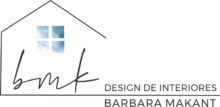Whether they are discussing the responsibility performance problems of an employee or taking into consideration strategies for managing a competitor, board members regularly deal with very sensitive and private information. They have to discuss concerns widely without fear that the deliberations will probably be exposed publicly, plus the legal repercussions for breaking confidentiality will be severe.
It’s important for panels to adopt and regularly assessment confidentiality regulations to ensure that they can be up to date and covering the most important issues. Ideally, an insurance policy should make clear that, except if required legally or sanctioned by the panel, administrators may not disclose confidential info to anyone (including the sponsors), and that they have an most critical duty of confidentiality with respect to all non-public company details.
While these types of policies make the perfect start, the present cultural emphasis on transparency and disclosure (exacerbated in the corporate and business context by activist shareholders and the director nominees) makes it all the more essential for organizations to go live robust reliability measures that prevent unauthorized access, posting, or leakage of aboard documents. These steps include:
Having a secure table portal where documents happen to be encrypted and only accessible to the people with the suitable password is a crucial step with respect to protecting private documents for boards. Some organizations offer their mother board members with devices which can be only intended for board operate so that documents are easily erased if the machine is dropped check or misplaced.

